An SEO agency can be the catalyst that propels your business to new heights online. Whether you’re a small business owner or running an enterprise, the right SEO partner can help you navigate the complex world of search engine optimization and achieve long-term growth.
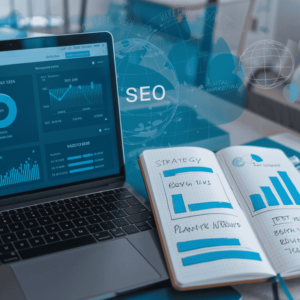
This guide will explore what an SEO agency does, why you need one, and how to choose the best partner for your business. Let’s dive in!
An SEO agency is a team of professionals optimizing a website’s visibility in search engine results. These agencies work to optimize your site’s technical setup, on-page elements, and external factors to increase organic traffic.
Think of an SEO agency as an extension of your marketing team that focuses solely on making your business visible to potential customers online. They do this by using various strategies, tools, and industry insights.
While some businesses hire in-house SEO teams or rely on freelancers, SEO agencies offer unique advantages:
Search engine algorithms are constantly changing. It’s tough for business owners to stay on top of the latest updates while juggling other responsibilities. This is where an agency’s expertise comes in handy.
One of the most significant benefits of hiring an SEO agency is time savings. Managing SEO can be a full-time job, and as a business owner, you need to focus on running your business.
SEO isn’t a quick-fix strategy; it’s a long-term investment. The benefits compound over time, building brand authority and increasing visibility.
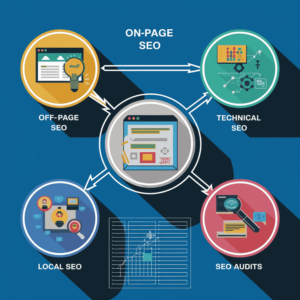
On-page SEO involves optimizing elements within your website to improve its relevance and user experience.
Off-page SEO focuses on building external signals and authority for your site.
Technical SEO is optimizing your website’s technical aspects to ensure it’s properly indexed and ranked by search engines. This involves making sure your site is fast, mobile-friendly, and easy to navigate for both users and search engine bots.
One of the first things an SEO agency will address is your site’s speed. Slow websites frustrate users and hurt your rankings.
With more users searching on their mobile devices, having a mobile-optimized site is crucial.
Structured data helps search engines understand your content better. SEO agencies use this technique to improve your site’s visibility in search results.

Local SEO is crucial for businesses that rely on local customers. It helps your business show up in local searches and Google Maps results, making it easier for nearby customers to find you.
The first step in local SEO is creating and optimizing your Google Business Profile (formerly known as Google My Business).
Consistency is vital when it comes to your business information.
Online reviews are vital for local SEO. They influence how potential customers perceive your business and affect your local rankings.
SEO audits and regular reports are essential for monitoring your site’s performance and making necessary adjustments. Agencies use audits to identify areas of improvement and track your SEO progress over time.
Agencies provide ongoing reports to show how your SEO strategy is performing.
Understanding your competition is crucial to staying ahead in the game.
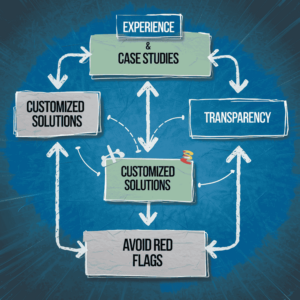
Choosing the right SEO agency can feel overwhelming, but focusing on critical factors can simplify your decision-making process.
Here’s what you should look for:
There are some red flags that you should watch out for:
Understanding the cost structure is crucial when hiring an SEO agency. SEO services are an investment, and knowing what influences pricing can help you make an informed decision.
Agencies typically offer standard pricing models to fit different business needs and budgets. Here’s a look at the most common ones:
The cost of SEO services can vary significantly depending on several factors:
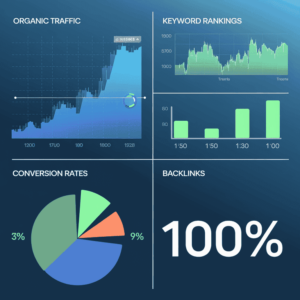
An effective SEO agency doesn’t just drive traffic—it measures and analyzes its efforts to ensure long-term success. Understanding how success is measured helps you track your progress and stay on top of your investment.
SEO agencies use several KPIs to evaluate the effectiveness of their strategies. Here are some of the most common ones:
Understanding SEO reports is vital to staying informed and knowing if the agency delivers results.
Choosing between handling SEO alone or hiring an agency is a big decision. It often depends on your business’s size, goals, and resources.
SEO in-house can work for startups and small businesses with limited budgets. It requires a willingness to learn and a commitment to regular upkeep.
If you’re considering DIY SEO, there are several free tools to help you get started:
Small businesses with DIY ambitions can handle basic tasks like:
While DIY SEO can work for smaller operations, hiring a professional SEO agency offers significant advantages.
Agencies can handle more extensive and complex SEO work, making them suitable for businesses aiming to scale or tackle a competitive market.
Agencies use advanced tools that go beyond free versions. They also employ experienced specialists who stay updated on industry trends and changes.
SEO constantly evolves, and keeping up with changes can be challenging. Agencies stay on top of algorithm updates to ensure your site remains compliant and competitive.

Hiring an SEO agency is just the beginning. Effective communication and collaboration are crucial to getting the most out of your partnership. Here’s how to make it work.
Before your SEO journey begins, it’s crucial to define your goals. Clear goals give both you and your agency a roadmap to success.
Not all SEO goals are the same. Your objectives will depend on your business model and needs. Here are some common goals you might consider:
SEO shouldn’t operate in a vacuum. It’s most effective when it’s part of a larger marketing strategy. Ensure your SEO goals align with your social media, content, and advertising efforts. Consistency across all platforms amplifies your brand message and improves results.
Staying informed about what your agency is doing and how your SEO is progressing is essential. Regular updates foster trust and keep everyone on the same page.
It’s a good idea to schedule regular meetings with your SEO agency. These can be weekly or monthly, depending on your needs. During these check-ins, review:
You know your business best, while the agency knows SEO. By working together, you can create content and build backlinks that resonate with your target audience.
SEO isn’t a quick fix. It takes time to see significant results. But when done right, the benefits are lasting and valuable.
SEO usually starts showing noticeable improvements within three to six months. However, achieving substantial goals, like becoming a market leader in your niche, can take longer. Be prepared for ups and downs, and stay focused on the bigger picture.
Not all tactics work the same way for every business. Stay flexible and be open to trying new strategies based on the data. Your agency will likely run tests, gather insights, and make adjustments to continuously optimize results.
Building a long-term relationship with your SEO agency has significant advantages. Trust, familiarity and a shared vision help create a successful partnership.
SEO isn’t a one-time task. Search engines change, competitors adapt, and your business evolves. A long-term partnership ensures your strategy stays relevant.
Google rolls out algorithm updates regularly. While some changes are minor, others can impact your site significantly. An ongoing partnership with an SEO agency means they can swiftly adapt your strategy to keep you compliant and competitive.
As your business grows, so should your SEO strategy. An agency that understands your goals can seamlessly expand your keyword focus, target new audiences, and update your content to reflect changes in your offerings.
When you work with an agency long-term, they become more than just a vendor. They become a partner who understands your business deeply.
With time, your agency gets to know your communication style and preferences. This leads to smoother collaboration and fewer misunderstandings. Regular discussions about goals and challenges help you align and stay proactive.
SEO results compound over time. The longer your agency works on optimizing your site, the stronger your online presence becomes. A steady increase in domain authority, more backlinks, and an expanding content library contribute to sustainable growth.

The world of SEO is constantly changing. Staying informed about upcoming trends helps you future-proof your strategy and stay ahead of competitors.
AI isn’t just a buzzword—it’s shaping how SEO works. From automating repetitive tasks to predicting search trends, AI has the power to transform strategies.
AI enables agencies to forecast future performance better based on current trends. This allows for proactive adjustments rather than reactive fixes. Predictive analytics can also help identify which strategies will likely provide the highest ROI.
With the rise of voice assistants like Alexa, Google Assistant, and Siri, optimizing for voice search is becoming essential.
Agencies are focusing more on natural language and conversational queries. Instead of targeting single keywords, they’re looking at question-based phrases like “What are the best Italian restaurants near me?”
Google’s Core Web Vitals metrics highlight the growing importance of user experience in SEO rankings. Sites that provide fast, stable, and interactive experiences are more likely to rank higher.
Agencies prioritize page speed, reduce layout shifts, and enhance site interactivity to align with Core Web Vitals requirements. This results in a better user experience and higher rankings.
Slow-loading pages and unstable elements harm both user experience and SEO. By addressing these factors, agencies improve your rankings, user satisfaction, and engagement.
A good SEO agency is more than just a service provider—it’s a partner in your business’s growth journey. Setting clear goals, maintaining open communication, and building a long-term relationship can create a powerful synergy that drives sustainable results. Keep an eye on the latest trends, stay flexible, and work closely with your agency to keep pushing your business forward.
If you’re ready to find the right SEO partner, take these insights to heart and start your search with confidence!
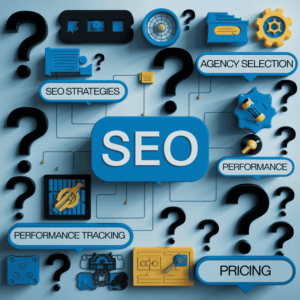
When interviewing potential SEO agencies, ask about their experience in your industry, their approach to strategy development, and the tools they use. To ensure transparency, you should also inquire about how they measure success, their reporting methods, and their communication practices.
SEO is a long-term strategy, and it typically takes 3 to 6 months to start seeing noticeable improvements in organic traffic and rankings. The timeline can vary depending on your industry, the competitiveness of your target keywords, and your website’s current state.
An experienced SEO agency can help you identify and recover from Google penalties. They will perform an in-depth audit to find the root cause of the penalty, such as spammy backlinks or duplicate content, and implement corrective measures to restore your rankings.
Look for agencies that prioritize transparency and use white-hat SEO tactics. Ethical agencies will focus on creating quality content, building natural backlinks, and improving user experience rather than trying to manipulate search engine rankings with shortcuts or spammy practices.
Most SEO agencies work with a wide range of industries and business sizes. However, some may specialize in specific niches like e-commerce, local businesses, or B2B services. It’s essential to choose an agency with relevant industry experience.
While agencies handle most of the heavy lifting, they still need your input on business goals, target audience insights, and content approval. It’s a collaborative process, so staying engaged and providing feedback will help your agency deliver the best results.
Content is at the heart of every effective SEO strategy. Agencies often optimize existing content and create new, high-quality pieces that target relevant keywords. Well-crafted content not only improves rankings but also engages and converts visitors.
Reputable SEO agencies stay up-to-date with algorithm changes and proactively adjust strategies. They monitor vital metrics to spot any drops in performance and tweak your site’s technical, on-page, and off-page SEO elements as needed to align with Google’s updates.
SEO focuses on improving organic search rankings through optimization techniques, while PPC (pay-per-click) involves paying for ads that appear in search results. Many SEO agencies also offer PPC services or partner with specialists to provide a comprehensive digital marketing strategy.
SEO agencies use various methods to build backlinks, including guest blogging, outreach to industry websites, creating shareable content, and collaborating with influencers. The focus is on earning quality backlinks from authoritative sites to boost your website’s credibility.
Many SEO agencies offer local SEO as core services, mainly if your business relies on local customers. Local SEO includes:
A good SEO report should include metrics such as organic traffic growth, keyword rankings, conversion rates, and backlink profiles. It should also provide insights into the implemented strategies, progress made, and recommendations for ongoing improvements.
Search engines like Google use a set of rules and processes to determine the relevance and ranking of web pages in response to a search query.
Links from other websites pointing to your site. High-quality backlinks are crucial for SEO, as they indicate credibility and trustworthiness to search engines.
Unethical SEO practices that attempt to manipulate search engine rankings, such as keyword stuffing, cloaking, or buying links. These tactics can lead to penalties or bans from search engines.
The percentage of visitors who leave a website after viewing only one page. A high bounce rate often indicates poor user experience or irrelevant content.
A strategy focused on creating and distributing valuable, relevant content to attract and engage a target audience to drive profitable customer action.
The percentage of website visitors who complete a desired action, such as purchasing, signing up for a newsletter, or filling out a contact form.
Google uses a set of specific metrics to measure and assess user experience. They include page load speed, interactivity, and visual stability of a webpage.
The ability of search engine bots to access, navigate, and index a website’s pages. A crawlable site is essential for good SEO performance.
A search engine ranking score developed by Moz that predicts how well a website will rank on search engine results pages (SERPs). It’s based on factors such as backlinks and site credibility.
Special boxes at the top of Google search results that display a quick answer to a user’s query. These are often extracted from well-optimized content and formatted as lists, paragraphs, or tables.
A free tool provided by Google that helps businesses manage their online presence on Google Search and Maps. It includes essential details like location, hours of operation, and customer reviews.
A specific word or phrase that users enter into search engines when looking for information. Keywords are the foundation of SEO, as they help search engines understand what your content is about.
Finding and analyzing the words and phrases users search for to optimize content and attract more relevant traffic to a website.
A branch of SEO that focuses on optimizing a website to rank higher in local search results, helping businesses attract customers within their geographic area.
HTML elements provide search engines with information about a web page. The most critical SEO meta tags are the title and meta description.
NAP stands for Name, Address, and Phone Number. NAP consistency refers to the accuracy and uniformity of this information across all online listings, which is crucial for local SEO.
It is optimizing individual web pages to rank higher in search engine results. This includes optimizing content, meta tags, headings, and images.
Visitors who arrive at your website through unpaid search results. Organic traffic is a crucial indicator of successful SEO efforts.
PPC is an online advertising model in which advertisers pay each time a user clicks on their ad. PPC ads often appear at the top of search results pages and are labeled “Ads.”
A type of structured data that helps search engines understand the content of a webpage. Schema markup can enhance search results by adding rich snippets like reviews, ratings, and FAQs.
Improving a website’s visibility in search engine results pages (SERPs) through various strategies, including keyword optimization, content creation, and technical improvements.
Search engines display the pages in response to a user’s query. SERPs typically include organic results, paid ads, and sometimes rich or featured snippets.
The process of optimizing the technical aspects of a website, such as site speed, mobile responsiveness, and crawlability, to improve its search engine rankings.
The overall experience a visitor has while interacting with a website. Good UX, which impacts SEO, includes easy navigation, fast loading times, and mobile-friendliness.
A technology that allows users to search the web using spoken queries instead of typing. Optimizing for voice search often involves focusing on conversational keywords and question-based queries.
Ethical SEO practices that align with search engine guidelines. White-hat SEO focuses on creating quality content, earning backlinks naturally, and improving user experience for long-term success.
Ahrefs – Ahrefs is a leading SEO toolset that provides valuable insights, tutorials, and industry news for anyone interested in improving their website’s performance.
SEMrush – SEMrush offers a comprehensive toolkit for SEO, content marketing, competitor analysis, and advertising, alongside educational resources for digital marketers.
Backlinko – Backlinko provides high-quality SEO training, case studies, and actionable strategies that can help users boost their rankings and traffic.
Search Engine Journal – Search Engine Journal is a popular online publication offering the latest SEO news, trends, and how-to guides.
Yoast – Yoast is best known for its SEO plugin for WordPress, but it also provides a blog with tips and best practices for improving your site’s SEO.
Google Search Central – Google Search Central is Google’s official resource for webmasters, offering guidelines, tools, and tips to optimize your site for Google Search.
Neil Patel – Neil Patel provides in-depth guides, SEO tools, and insights into digital marketing strategies that can help businesses improve their online presence.

Our co-founder, Matt LaClear, provided the SEO tips on this page. Since 2009, Matt has successfully managed over 13,277 SEO campaigns for clients, making him a seasoned expert in the field. If you’re a small business owner looking to enhance your online presence, don’t miss this opportunity. Matt offers a unique, free custom SEO strategy call tailored to your business needs. If you’re qualified and interested, you can request your free call at https://digitalwins.ai/free-custom-seo-strategy-call/. Take advantage of this offer to gain personalized insights and improve your rankings today!
Copyright Digital Wins 2025